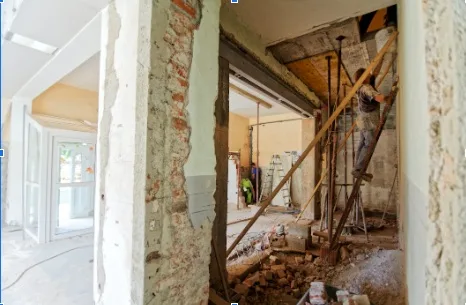Renovating a home can be an exciting and rewarding experience, but it can also create a lot of waste. From old appliances to building materials, the debris left over from a renovation project can be overwhelming. However, there are several options available for homeowners to dispose of their renovation waste responsibly.
- Practical Disposal Methods
1a. Recycling
1b. Landfill Disposal
1c. Hazardous Waste Disposal
- Hiring Professionals
2a. Choosing a Waste Removal Company
2b. Costs and Considerations
- Conclusion
Practical Disposal Methods
Recycling
Recycling is a popular method of disposing of renovation waste. It involves reusing materials that would otherwise end up in the landfill. Many construction materials can be recycled, including concrete, metal, wood, and plastic. Recycling helps conserve natural resources and reduce the amount of waste that ends up in landfills.
To recycle renovation waste, individuals can contact their local recycling center or waste management company. They can provide information on what materials can be recycled and how to properly prepare them for recycling. In some cases, they may also offer pick-up services for larger items.
Landfill Disposal
Landfill disposal is the most common method of disposing of renovation waste. It involves burying waste in a landfill, where it will decompose over time. While this method is convenient, it can have negative environmental impacts. Landfills can produce methane gas and other pollutants, which can harm the environment and local communities.
Individuals should check with their local waste management company for guidelines on landfill disposal. They may have specific regulations on what materials can be disposed of in landfills and how they should be prepared.
Hazardous Waste Disposal
Hazardous waste, such as paint, solvents, and chemicals, should not be disposed of in landfills. They can contaminate the soil and groundwater, posing a risk to human health and the environment. Instead, hazardous waste should be disposed of through specialized programs.
Individuals can contact their local waste management company or environmental agency for information on hazardous waste disposal. They may offer drop-off locations or pick-up services for hazardous waste.
In conclusion, there are several practical methods for disposing of renovation waste, including recycling, landfill disposal, and hazardous waste disposal. It is important to follow proper guidelines and regulations to ensure that waste is disposed of safely and responsibly.
Hiring Professionals
Renovating a house can be a stressful and time-consuming process. One of the most significant challenges is dealing with the waste generated during the renovation process. Hiring a professional waste removal company can help alleviate this burden and ensure that the waste is disposed of in an environmentally friendly and responsible manner.
Choosing a Waste Removal Company
When selecting a waste removal company, it is essential to consider several factors. First, ensure that the company is licensed and insured to operate in your area. This will protect you from any liability in case of accidents or damage to property during the waste removal process.
Second, consider the company’s reputation and experience in the industry. Look for customer reviews and testimonials to gauge the company’s level of professionalism and quality of service. A reputable waste removal company should have a track record of providing timely and efficient waste removal services. Furthermore, you can also consider looking for the type of services a Rubbish removal Brisbane company, or from a place near you, can offer. This can include construction debris, hazardous materials, or residential waste, to ensure they are equipped to handle all types of wastes appropriately.
Costs and Considerations
The cost of hiring a waste removal company will depend on several factors, including the amount of waste generated, the distance to the landfill, and the level of service required. It is essential to get quotes from several waste removal companies to compare prices and ensure that you are getting a fair deal.
In addition to cost, consider the environmental impact of the waste removal process. A reputable waste removal company should have a commitment to recycling and reducing waste in landfills. Ask about the company’s waste disposal methods and ensure that they comply with local regulations.
In conclusion, hiring a professional waste removal company can save time and reduce stress during a renovation project. By considering factors such as licensing, reputation, cost, and environmental impact, homeowners can ensure that they are getting the best possible waste removal service.
Conclusion
In conclusion, there are several ways to handle renovation waste responsibly. Homeowners, contractors, and builders can reduce the amount of waste that ends up in landfills by implementing the following strategies:
- Reuse and recycle materials whenever possible
- Donate or sell usable items to organizations or individuals in need
- Hire a waste management company that specializes in construction and demolition waste
- Choose environmentally friendly materials and products that are durable and long-lasting
- Plan ahead and order only the necessary amount of materials to avoid excess waste
By taking these steps, individuals and organizations can make a positive impact on the environment and reduce their carbon footprint. It is essential to remember that waste reduction and responsible disposal practices are crucial for the preservation of natural resources and the health of our planet.
Overall, it is essential to be mindful of the waste generated during renovation projects and take steps to minimize its impact on the environment. With the right approach and a commitment to sustainability, we can all make a difference and contribute to a cleaner, healthier planet.





